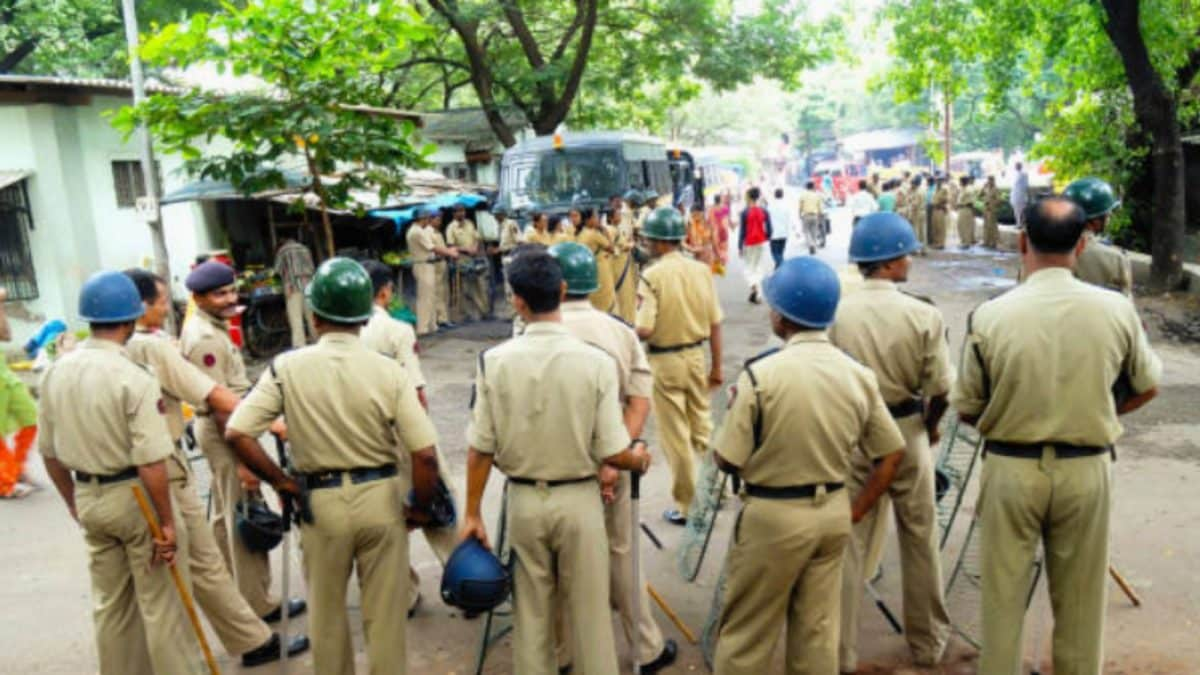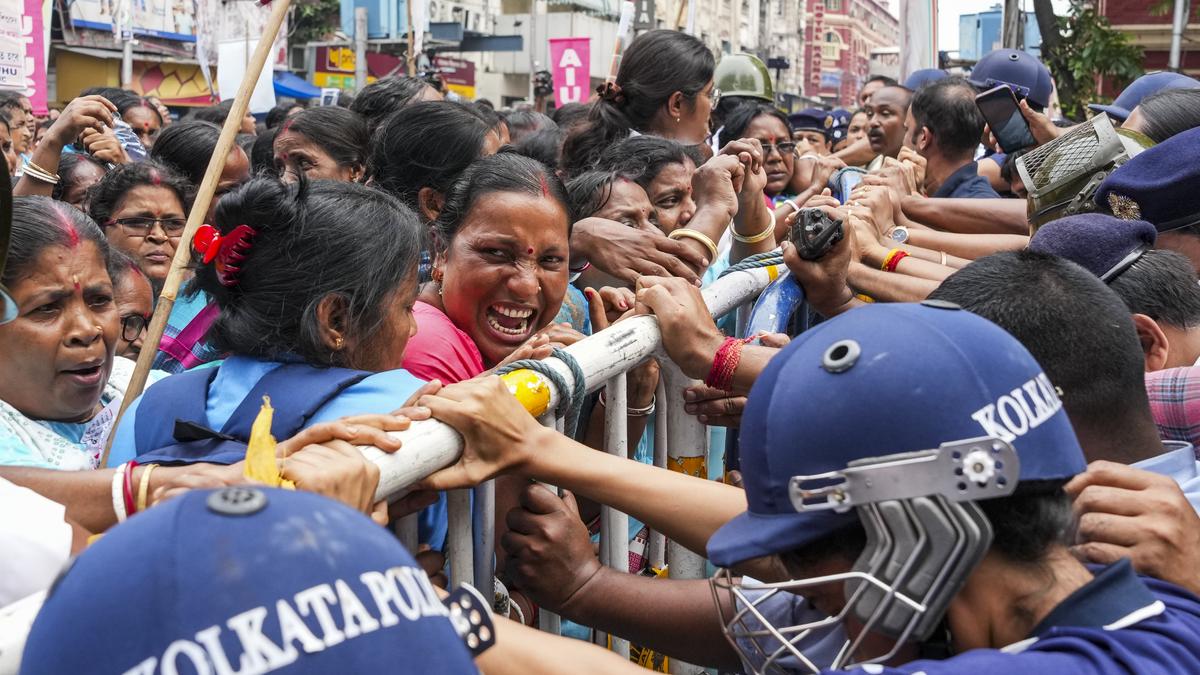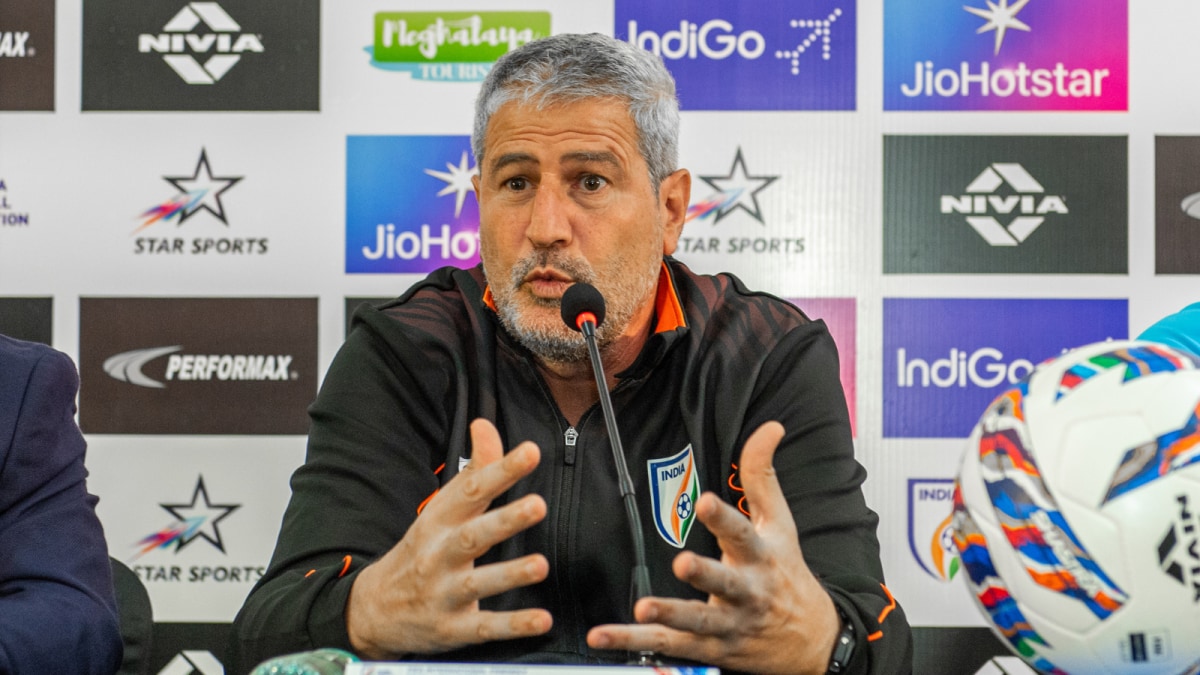ARTICLE AD BOX
Last Updated:July 16, 2025, 02:11 IST
The court let the convicts seek pardon from the Karnataka governor under Article 161, citing the crime as a result of youthful misjudgment rather than inherent criminality

The murder, which occurred just two days after the victim’s engagement to Shubha, was, in the court’s words, not the result of innate criminality but a 'dangerous adventure born out of emotional rebellion and wild romanticism'. File pic
The Supreme Court on July 14 upheld the conviction and life imprisonment of a then BA-LLB student, her boyfriend, and two others for the murder of her fiancé in 2003. However, while affirming their culpability, the court granted them liberty to seek pardon under Article 161 of the Constitution, noting the psychological and circumstantial complexities that surrounded the crime.
A bench of Justices MM Sundresh and Aravind Kumar dismissed the appeals filed by Kum Shubha alias Shubhashankar and co-accused Arun Verma, Dinesh alias Dinakaran, and Venkatesh, challenging the Karnataka High Court’s decision upholding their conviction and sentence for the murder of BV Girish, a 26-year-old software engineer employed with Intel, Bengaluru.
The murder, which occurred just two days after the victim’s engagement to Shubha, was, in the court’s words, not the result of innate criminality but a “dangerous adventure born out of emotional rebellion and wild romanticism". The court held that the prosecution had successfully established the chain of circumstantial evidence, including continuous call records between Shubha and the co-accused, pointing to a clear conspiracy and “meeting of minds".
The court also acknowledged the mental state of the girl, observing that “the voice of a young ambitious girl, muffled by a forced family decision, created the fiercest of turmoil in her mind." Ita remarked that this inner conflict, paired with emotional entanglements, culminated in the tragic loss of an innocent life and simultaneously derailed the lives of four young individuals.
The bench, however, made it clear that empathy could not override culpability. “We cannot condone her action as it resulted in the loss of an innocent life," the court said, while also noting that years had passed since the crime and that the appellants were no longer the same individuals they were at the time of the offence.
Two of the four convicts were teenagers at the time of the incident, while Shubha had just crossed that threshold. The fourth accused, a 28-year-old man, was recently married and had a child when the appeal was decided. The court acknowledged their middle-aged status today, observing that “adrenaline-pumped decisions of youth must sometimes be revisited through the lens of reform, not just retribution".
Liberty to Seek Pardon
While dismissing the appeal and affirming the life sentence, the court invoked Article 161 of the Constitution, allowing the appellants to file petitions for gubernatorial pardon before the governor of Karnataka. The bench expressed hope that the constitutional authority would take into account the entirety of the circumstances surrounding the case.
“We would only request the constitutional authority to consider the same, which we hope and trust would be done by taking note of the relevant circumstances governing the case," the judgment stated. The court granted the convicts eight weeks to file the pardon plea and ordered that they shall not be arrested and that their sentence shall remain suspended until the governor’s decision is made.
What Happened?
According to the prosecution, Shubha was unwilling to marry Girish and confided in her college friend and romantic partner, Arun Verma. Moved by her distress, Verma sought help from his cousin Dinesh, who, in turn, brought in his teenage friend Venkatesh to execute the plan.
The engagement took place on November 30, 2003. Two days later, on December 3, Shubha invited Girish to dinner. On their return, they stopped at the “Air View Point" along the Airport Ring Road to watch planes land, a popular hangout spot in Bengaluru. It was there that Girish was attacked with a steel rod by an “unknown assailant" and left with critical head injuries. He succumbed to the wounds the following day in the hospital.
While initially appearing as a random act of violence, investigations soon revealed a web of mobile communication between the accused. The prosecution’s case rested primarily on circumstantial evidence, supported by call detail records (CDR), which placed the accused in constant contact before, during, and after the murder.
The trial court convicted all four under Section 302 (murder), read with Section 120B (criminal conspiracy) of the Indian Penal Code. The High Court affirmed the conviction, following which the appeals landed before the Supreme Court.
In perhaps the most humanising portion of the verdict, the SC refrained from using the harsh language usually associated with murder convictions. It instead focused on the circumstances of compulsion, familial pressure, and emotional immaturity, concluding that while the crime cannot be forgiven, the convicts deserve the opportunity for rehabilitation.
“This Court seeks to view the matter from a different perspective, only for the purpose of giving a new lease of life to the appellants," the judgment said, striking a rare balance between justice for the deceased and reformative justice for the offenders.
Under Article 161, a governor has constitutional power to pardon, remit, or suspend a sentence. The Supreme Court’s order does not mandate such relief but merely permits the convicts to make the request.
The final decision lies with the governor of Karnataka, who must weigh the circumstances, including the gravity of the offence and the passage of time, before granting any clemency.
Until then, the sentence imposed on the convicts remains suspended, and they won’t be taken into custody.

Sanya Talwar, Editor at Lawbeat, has been heading the organisation since its inception. After practising in courts for over four years, she discovered her affinity for legal journalism. She has worked previousl...Read More
Sanya Talwar, Editor at Lawbeat, has been heading the organisation since its inception. After practising in courts for over four years, she discovered her affinity for legal journalism. She has worked previousl...
Read More
- Location :
- First Published:
News india 2003 Bengaluru Techie Murder: SC Upholds Life Sentence Of Law Student Fiancée & Others, But...
Disclaimer: Comments reflect users’ views, not News18’s. Please keep discussions respectful and constructive. Abusive, defamatory, or illegal comments will be removed. News18 may disable any comment at its discretion. By posting, you agree to our Terms of Use and Privacy Policy.



.png)
.png)
.png)
















 7 hours ago
7
7 hours ago
7









 English (US) ·
English (US) ·